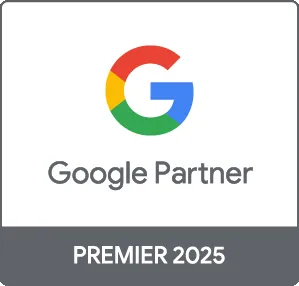Running a Google Ads campaign can transform your small business by connecting you with potential customers actively searching for your products or services. However, to unlock its full potential, strategic planning and execution are essential. In this article, we'll provide actionable tips tailored to small businesses, ensuring your advertising budget delivers maximum return on investment (ROI).
Why Google Ads?
Google Ads is a powerful platform that allows you to reach your target audience precisely when they are searching for relevant products or services. With a wide reach and the ability to target specific demographics, Google Ads can provide immediate visibility and drive qualified traffic to your website.
1. Set Clear Goals
Before launching a Google Ads campaign, determine what you aim to achieve. Common goals include:
- Increasing website traffic
- Generating leads or sales
- Boosting brand awareness
2. Understand Your Audience
Know who your ideal customers are. Utilize tools like Google Analytics to gather insights about demographics, interests, and behaviors. This information will guide your keyword selection and ad messaging.
3. Conduct Keyword Research
Keywords are the backbone of any successful Google Ads campaign. Focus on:
- Long-tail Keywords: These are more specific phrases that can attract qualified leads (e.g., "affordable web design for small businesses").
- Negative Keywords: Identify words that are irrelevant to your business to avoid wasting ad spend.
4. Create Compelling Ad Copy
Your ad copy should capture attention and convey your unique value proposition. Tips for effective ad copy include:
- Use action-oriented language.
- Highlight benefits and promotions.
- Create urgency (e.g., limited-time offers).
5. Optimize Landing Pages
The landing page where users arrive after clicking your ad plays a critical role in conversion rates. Ensure it is:
- Relevant to the ad campaign.
- Mobile-friendly.
- Fast-loading.
6. Monitor and Adjust Bids
Regularly review your campaigns and adjust bids based on performance. Consider setting up automatic bidding strategies to optimize costs based on your goals.
7. Analyze and Optimize
Regular analysis of your campaign performance is essential. Use Google Ads reporting tools to track metrics such as:
- Click-through rates (CTR)
- Conversion rates
- Return on ad spend (ROAS)
Conclusion
A well-structured Google Ads campaign can be a game-changer for small businesses, driving targeted traffic and increasing revenue. By setting clear goals, understanding your audience, conducting thorough keyword research, crafting compelling ad copy, optimizing landing pages, and regularly monitoring performance, you can maximize your ROI. At Prebo Digital, we specialize in digital marketing strategies that help small businesses succeed online. Ready to take your Google Ads to the next level? Contact us for a free consultation!





